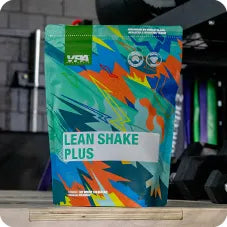- $0.00 AUD Subtotal
Collagen for Tendon Repair: Can Supplements Support Recovery?
September 11, 2025 7 min read

TL;DR
Tendons connect muscles to bones and are mainly composed of collagen, the protein that gives them their strength and flexibility. When tendon injuries occur, collagen fibres break down, leading to pain, reduced mobility, and slow recovery due to the tendon’s limited blood supply. Collagen production also declines naturally with age, stress, and poor nutrition, which makes healing even harder.
Collagen for tendon repair, particularly hydrolysed collagen peptides, provides essential amino acids (such as glycine, proline, and hydroxyproline) that stimulate new collagen production in tendons. Clinical studies have shown that when taken in conjunction with vitamin C and exercise, collagen can reduce pain, improve tendon thickness and function, and support faster recovery compared to exercise alone. The best results are achieved by taking 10-15 g of collagen with vitamin C approximately 30-60 minutes before exercise, allowing collagen levels to peak when tendon cells are most active.
Although the evidence is promising, research is still in its early stages of development. Results vary between tendon types, and most studies are of short-term duration. Collagen should be used as a supportive strategy, alongside physiotherapy, nutrition, lifestyle changes, and progressive loading exercises, rather than as a stand-alone cure.
How to speed up tendon healing? Select a high-quality, third-party tested collagen supplement, such as VPA Collagen Pro, and pair it with vitamin C. Maintain consistency for 3-6 months to build stronger, more resilient tendons.
Estimated reading time: 7-8 minutes
Why Collagen Matters for Tendons
Tendons are strong, fibrous tissues that connect muscles to bones, acting as the bridging force that allows us to move.
While tendons are tough, they are still prone to injuries, particularly in athletes, manual workers, older adults, and those engaged in intense physical activity. These injuries often take a long time to heal due to the limited blood supply and the complex structure of tendon tissue. With age, this issue becomes even more troublesome.
Collagen, the body’s most abundant protein 1, makes up around 70-80% 2 of a tendon’s dry weight, with type I collagen being the dominant form.
This protein provides the tensile strength needed for tendons to endure high levels of stress during movement and exercise. When tendon injuries occur, collagen fibres break down, leading to pain, inflammation, reduced mobility, and hence a hindrance to your everyday active lifestyle.
If you are searching for answers to how to speed up tendon healing, here’s what you need to know. Restoring collagen through supplements is therefore critical to tendon repair. While the body naturally produces collagen, its synthesis slows down with age, stress, poor lifestyle choices, and inadequate nutrition. That’s where collagen supplementation may provide support, giving the body the building blocks it needs to speed up tendon healing and recovery.
How Collagen Supplements May Help Tendon Repair
Collagen supplements, primarily hydrolysed collagen peptides, contain small amino acid chains (proline, glycine, and hydroxyproline) that are easily absorbed in the gut and delivered to tissues like tendons and ligaments. Once in circulation, these peptides stimulate fibroblasts and cartilage cells 3 in joints to produce new collagen.
Clinical trials suggest that collagen for tendons, when paired with exercise, can:
-
Reduce pain in tendon-related injuries.
-
Improve tendon thickness and vascularisation (blood supply).
-
Support better functional outcomes, such as mobility and strength.
-
Enhance the tendon’s ability to withstand stress.
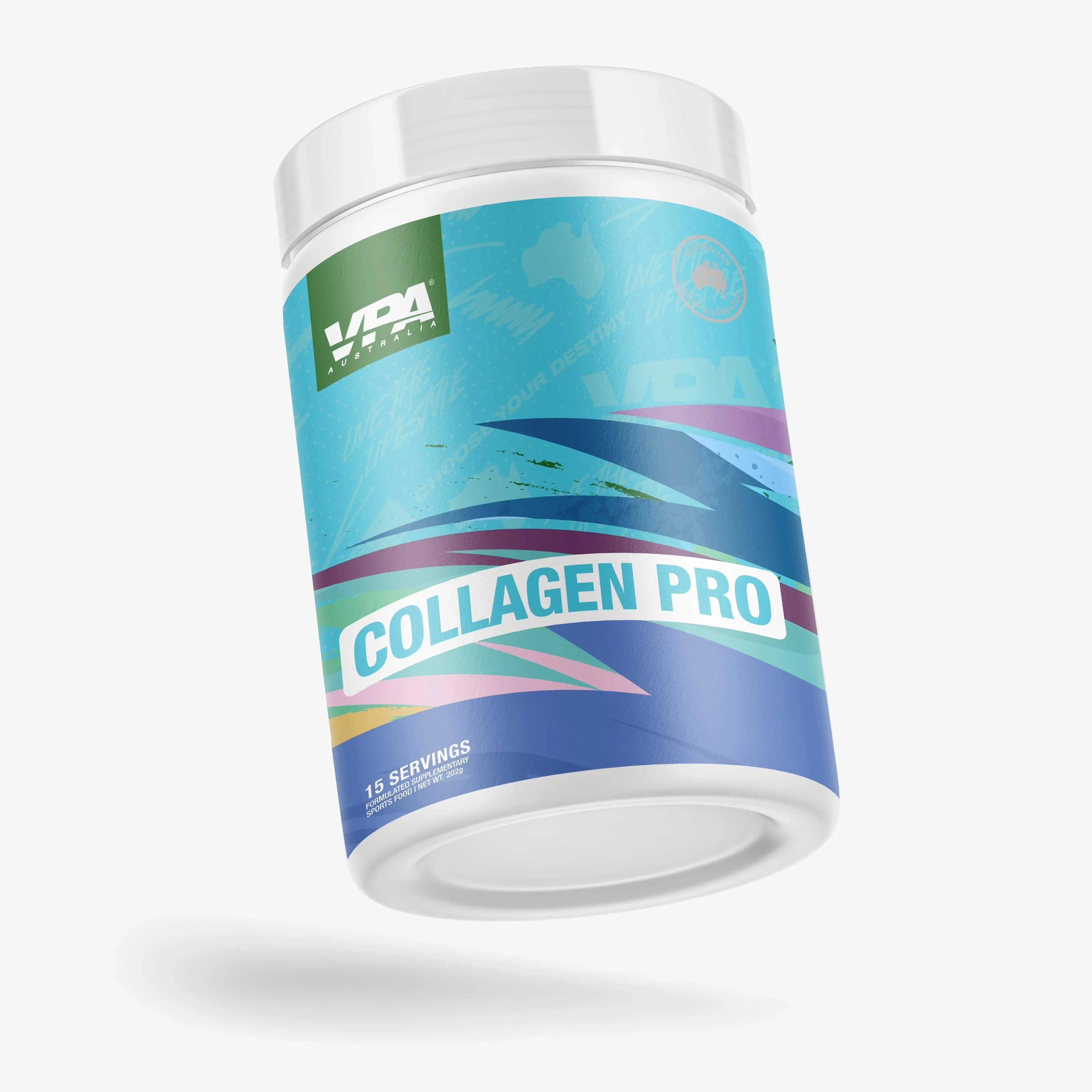
For example, studies on athletes with Achilles tendinopathy have shown that collagen supplementation combined with strengthening exercises leads to greater improvements in pain and function 4 compared to exercise alone. A recent clinical trial showed that two ultrasound-guided injections of low-molecular-weight hydrolysed collagen peptides improved pain and shoulder function over 12 weeks, 5 with no significant adverse events.
While results vary, the trend across studies points to a single, evidence-based fact: collagen for ligament repair appears to enhance the body’s natural repair mechanisms.
Collagen + Vitamin C + Exercise: The Winning Combo
If you thought collagen supplementation was enough to heal those aching joints and tendons, think again. Healing tendons requires more than just collagen. Three key factors work in synergy:
-
A tendon’s strength is directly related to how much collagen it contains. Collagen peptides provide the raw materials (amino acids such as glycine, proline, and hydroxyproline) that are needed to rebuild tendon fibres.
-
Vitamin C is an essential cofactor for collagen synthesis. Without adequate Vitamin C, the body cannot stabilise or mature new collagen fibres. Even a mild deficiency impairs tendon repair.
Even studies prove that Vitamin C supplementation, alone or in combination with other products, increases collagen synthesis with a consequent improvement 6 in the patient’s condition.
-
Exercise, particularly tendon-loading exercises like strengthening, stimulates the turnover of collagen and positively affects tenocytes (which help with repairing and fixing the tendons).
When combined, collagen for tendons, vitamin C, and exercise create a conducive environment for repair and recovery. Taking collagen with vitamin C approximately one hour before exercise significantly enhances collagen production markers in the body.
The logic is simple: this timing allows amino acids and vitamin C to peak in the bloodstream at the exact moment when exercise stimulates tendon cells to start rebuilding and repairing.
In practice, this means that the best approach for tendon health is not relying solely on collagen, but rather a combined strategy of supplementation, good nutrition, targeted exercise, and a healthy lifestyle.
How to Take Collagen for Tendon Health
If you’re considering collagen for tendon repair, here’s how to do it effectively:
-
Form: Choose hydrolysed collagen peptides, as these are broken down into smaller molecules for better absorption.
-
Dosage: Clinical studies commonly use 10-15 g of collagen per day, combined with 75-90g of Vitamin C. A typical serving is one scoop of collagen powder mixed with water, coffee, or smoothies.
-
Timing: For tendon repair, take collagen with vitamin C about 30-60 minutes before exercise. This maximises uptake and ensures collagen is at its peak in the bloodstream when the tendon is stimulated.
-
Exercise: Pair collagen intake with structured tendon-loading exercises such as eccentric strengthening.
-
Vitamin C support: Either pair your collagen with a Vitamin C supplement or consume vitamin C-rich foods like oranges, kiwi, or peppers alongside your collagen shake.
This routine can help you not only repair injured tendons but also build resilience and agility as you age, and reduce the risk of future tendon problems.
Limitations of Current Research
Although research into collagen for tendon repair is exciting, it has limitations:
-
Small sample sizes: Many trials are preliminary pilot studies with fewer than 50 participants.
-
Short duration: Most studies track outcomes for 12-24 weeks; long-term effects remain unknown.
-
Mixed results: While pain and function improve consistently, structural changes like tendon stiffness and thickness vary between studies.
-
Not all tendon injuries are the same: Results for Achilles tendinopathy may not translate to shoulder tears or other issues.
-
At times, collagen supplements don’t require double-blind, placebo-controlled, randomised trials, unlike medications. Hence, lab or test results may not be as trustworthy.
-
Pending results: Larger, more rigorous trials are still underway, so clinical guidelines have not yet fully endorsed collagen supplementation for tendon repair.
-
The supplement industry sponsors many studies, or study authors have financial links with the industry. Hence, results may be questionable.
In short, while collagen supplementation shows promise, it should be viewed as a supportive strategy for tendon care rather than a guaranteed cure. Exercise, physiotherapy, nutrition, and medical treatment remain paramount to tendon rehabilitation.
Choosing a Quality Collagen Supplement
With numerous collagen products available, quality is crucial. Here’s what to look for:
-
Hydrolysed collagen peptides for maximum absorption.
-
Third-party tested and batch-tested products that confirm purity, safety, and absence of contaminants and harmful additives.
-
Neutral flavour for easy mixing into drinks or foods.
-
Clear dosage labelling, ideally around 10-15 g per serving.
-
Added prebiotics for better nutrient absorption, gut health, and weight loss.
Why purity and dosage matter
Low-quality supplements may contain fillers, heavy metals, harmful additives, or mislabelled dosages. Since tendon recovery takes time and consistency, you need a product that delivers reliable amounts of collagen peptides daily.
Spotlight on VPA Collagen Pro
If you’re searching for a premium supplement, VPA’s Collagen Pro checks all the right boxes:
-
Hydrolysed collagen peptides from high-quality sources.
-
Third-party tested to ensure purity and safety.
-
100% natural, gluten-free, neutral taste for effortless daily use.
-
Contains added prebiotics and probiotics, which support both tendon health and collagen for gut health.
-
It can be easily paired with a Vitamin C supplement to optimise tendon repair.
These qualities make VPA Collagen Pro one of the best supplements for healing tendons and ligaments, while also offering broader collagen benefits for the skin, joints, gut health, and overall recovery.
Try VPA’s Prebiotic Collagen Protein today.
Final Word: Can Collagen Support Your Tendon Recovery?
The evidence so far suggests that collagen for tendon repair is a promising tool. Studies show that when collagen supplementation is paired with vitamin C and specific exercises, tendon healing improves more than with exercise alone. Pain decreases and mobility improves, and in some cases, tendon structure shows signs of regeneration, helping you carry out daily physical activities with ease.
That said, collagen benefits are not a miracle cure. It should be combined with physiotherapy, good nutrition, lifestyle changes, and a progressive loading programme. Results take time: most people will witness substantial results after 3-6 months of consistent use.
If you’re recovering from a tendon injury or simply want to protect your tendons against overuse or ageing, supplementing with a trusted product like VPA Collagen Pro, alongside strengthening exercise and vitamin C, can provide meaningful support.
FAQs
Does collagen really help tendon repair?
Yes, multiple clinical trials have shown improvements in pain, function, tendon repair, and tendon blood supply when collagen peptides are combined with exercise.
How long does collagen take to work for tendons?
Biological changes can begin within weeks, but noticeable improvements in pain and function usually take 3-6 months of consistent supplementation.
Should I take collagen before or after exercise?
The best time to take collagen is 30-60 minutes before exercise, especially when combined with vitamin C, so that collagen levels peak when tendon cells are stimulated by exercise.
Can collagen prevent tendon injuries?
While direct evidence is limited, stronger and more resilient tendons are less likely to tear. Regular collagen supplementation, combined with loading exercises, may reduce the risk of injury.
Is collagen safe for long-term use?
Hydrolysed collagen is well-tolerated and absorbed, but quality matters. Always choose the best supplements for healing tendons and ligaments, such as VPA’s third-party tested product, Collagen Pro.
References:
-
Cleveland Clinic. Collagen. Cleveland Clinic. Reviewed May 23, 2022. Accessed August 28, 2025.https://my.clevelandclinic.org/health/articles/23089-collagen
-
Physiopedia. Tendon biomechanics. Physiopedia. Accessed August 28, 2025.https://www.physio-pedia.com/Tendon_Biomechanics#:~:text=The%20tensile%20strength%20of%20a,have%20important%20functions%20in%20tendons
-
Al‑Atif H. Collagen supplements for aging and wrinkles: a paradigm shift in the fields of dermatology and cosmetics. Dermatol Pract Concept. 2022;12(1):e2022018. doi:10.5826/dpc.1201a18
-
Praet SFE, Purdam CR, Welvaert M, Vlahovich N, Lovell G, Burke LM, Gaida JE, Manzanero S, Hughes D, Waddington G. Oral supplementation of specific collagen peptides combined with calf‑strengthening exercises enhances function and reduces pain in Achilles tendinopathy patients. Nutrients. 2019;11(1):76. doi:10.3390/nu11010076
-
Latini L, Porta F, Maccarrone V, et al. Clinical efficacy and safety of ultrasound-guided injection with low‑molecular‑weight peptides from hydrolyzed collagen in patients with partial supraspinatus tendon tears: a pilot study. Life. 2024;14(11):1351. doi:10.3390/life14111351
-
Noriega‑González DC, Drobnic F, Caballero‑García A, Roche E, Perez‑Valdecantos D, Córdova A. Effect of vitamin C on tendinopathy recovery: a scoping review. Nutrients. 2022;14(13):2663. doi:10.3390/nu14132663

Rachel Eagleton
Rachel Eagleton (MHumNut) is a university qualified Clinical Nutritionist based in Sydney, Australia. She is a busy working mum of two teenagers, so is practical and realistic with her advice. Rachel offers private consultations to improve your sporting performance, or your general health and well-being.
Also in Supplements
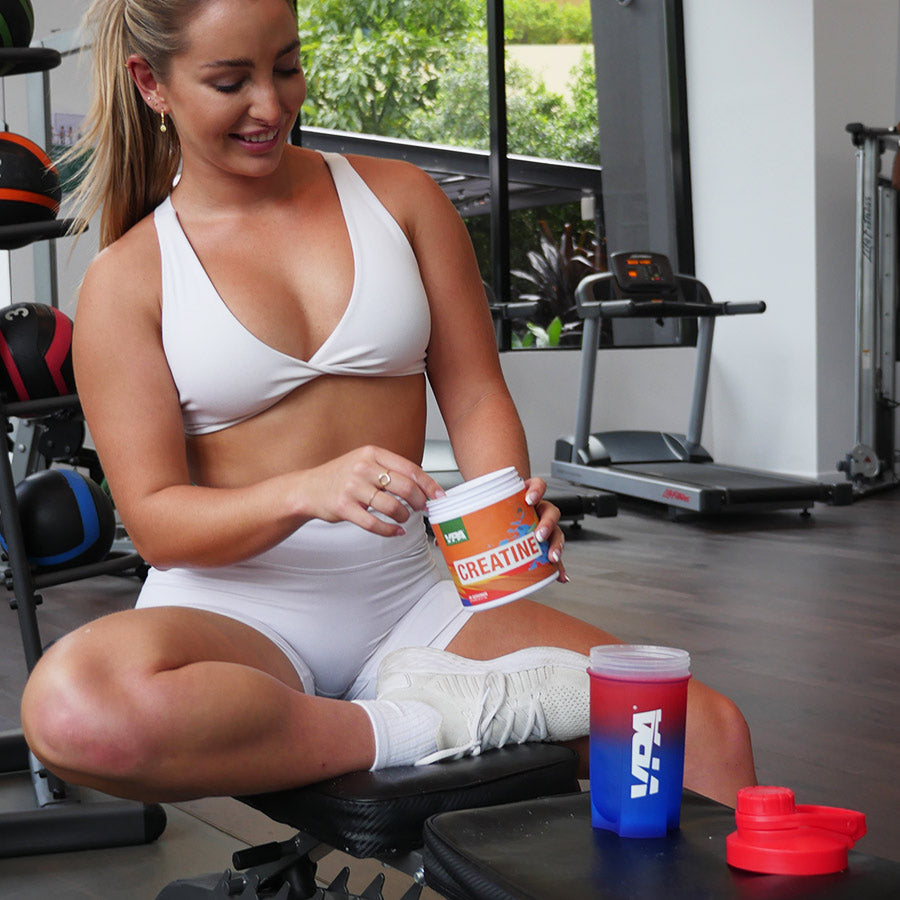
What Is Creatine Monohydrate? Benefits, Safety & How to Use It
September 10, 2025 7 min read
Read More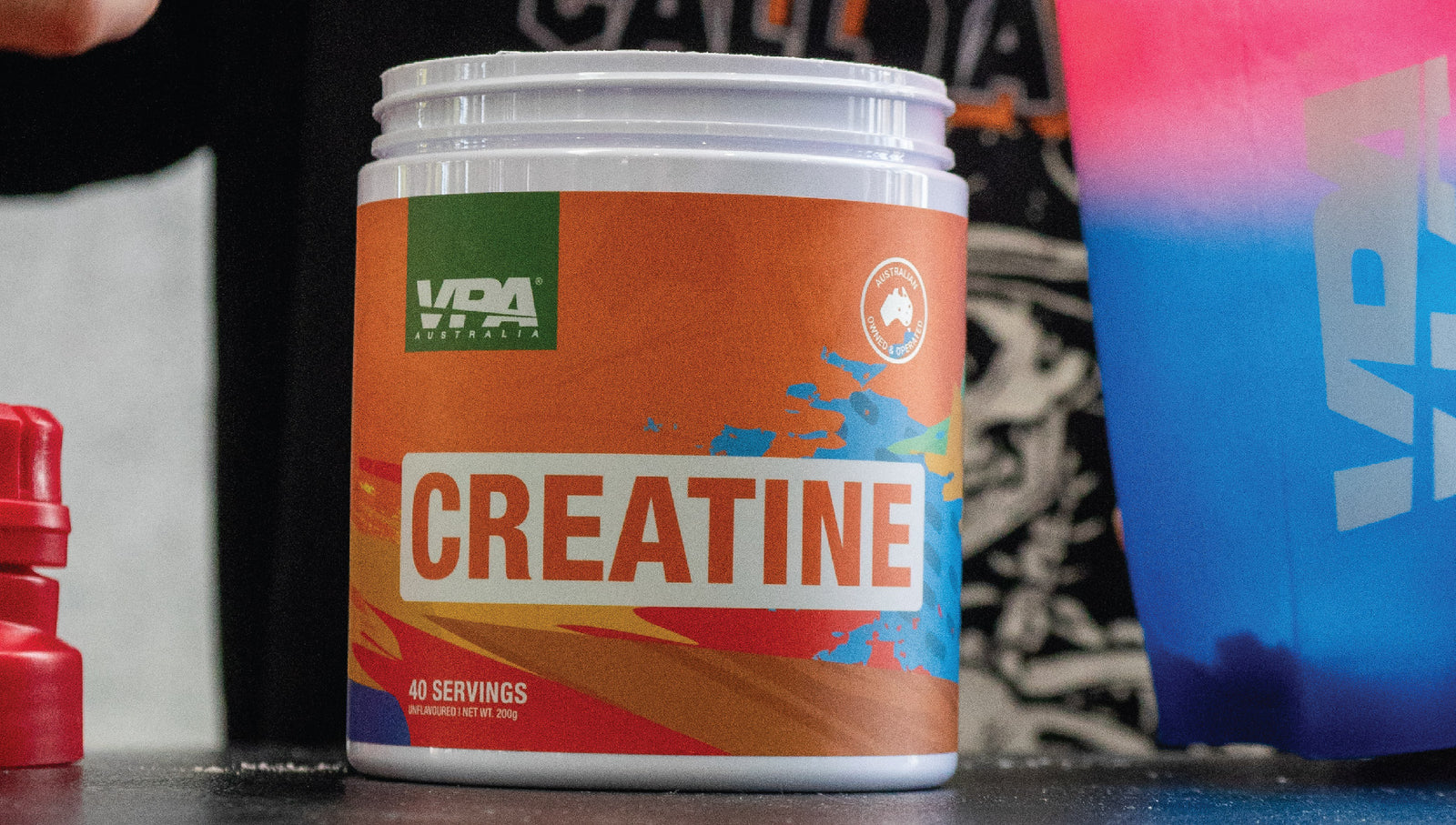
How Is Creatine Made? (Natural, Synthetic & Quality Standards Explained)
September 10, 2025 7 min read
Read More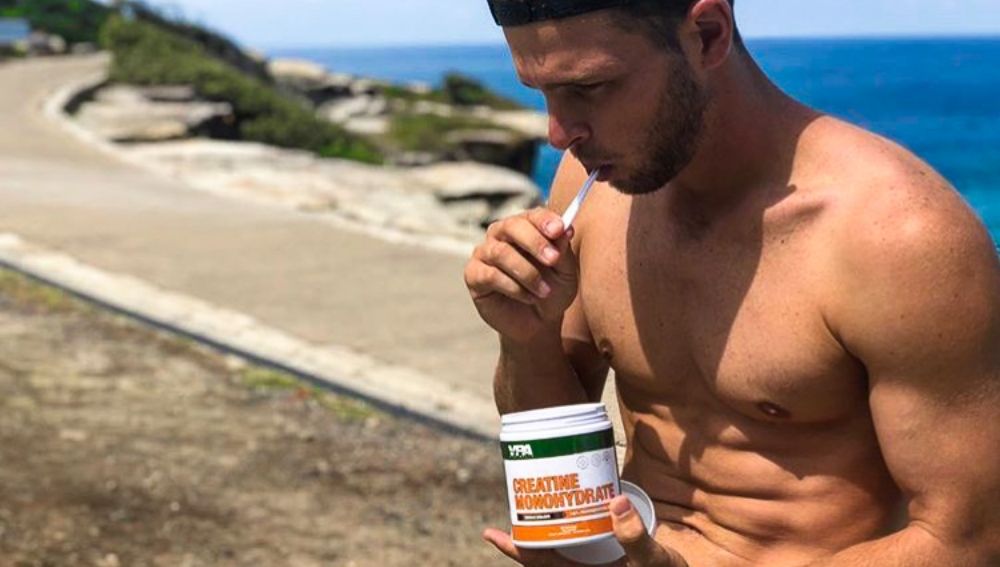
What’s the Best Creatine in Australia? Here’s Why Monohydrate Still Reigns Supreme
August 08, 2025 7 min read
Read More Recent Articles
- Collagen for Tendon Repair: Can Supplements Support Recovery?
- What Is Creatine Monohydrate? Benefits, Safety & How to Use It
- How Is Creatine Made? (Natural, Synthetic & Quality Standards Explained)
- What’s the Best Creatine in Australia? Here’s Why Monohydrate Still Reigns Supreme
- What Is Whey Protein? A Beginner’s Guide
- 7 Best Protein Powders in Australia (Taste-Tested August 2025)
- Why Does Beta‑Alanine Cause Tingling? (What’s Behind the Beta‑Alanine Tingle)
- How to Use Protein Powder to Maximise Your Results: A Beginner’s Guide
- 15 Pre-Workout Snack Ideas to Maximise Your Training
- Is Creatine Vegan? What Plant-Based Athletes Need to Know










